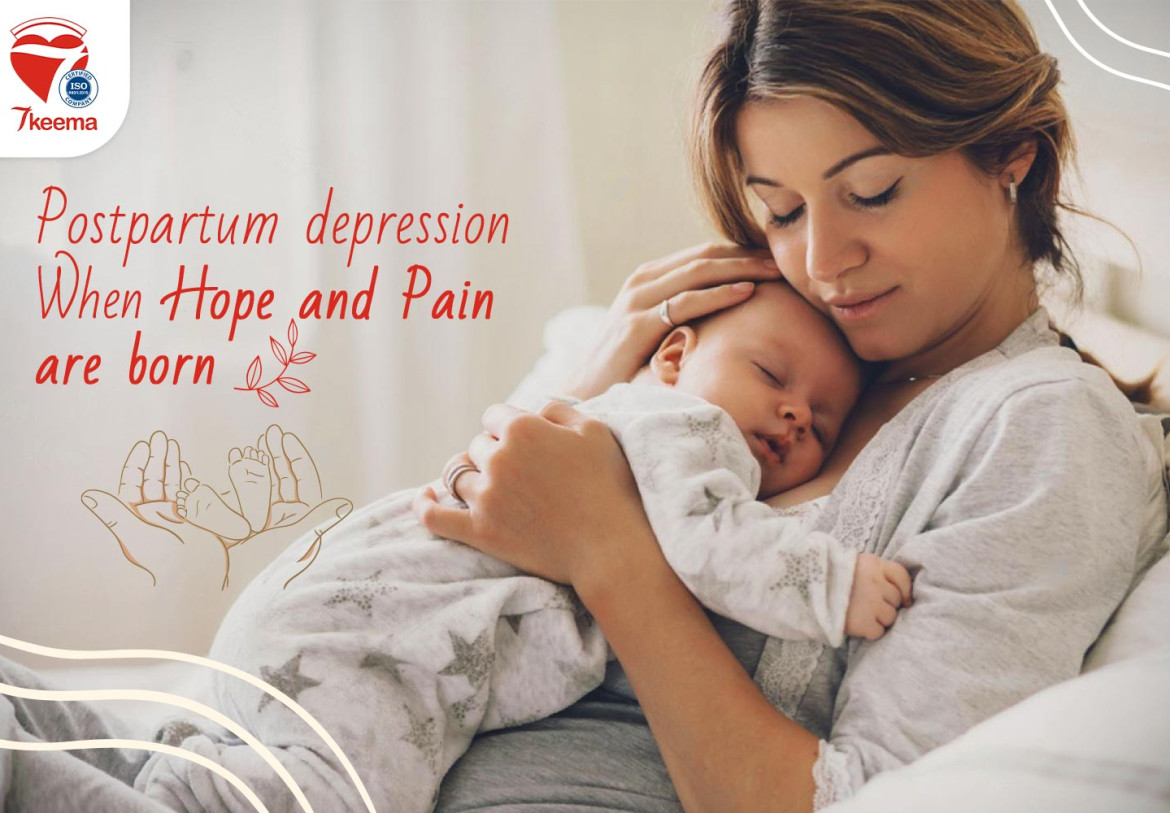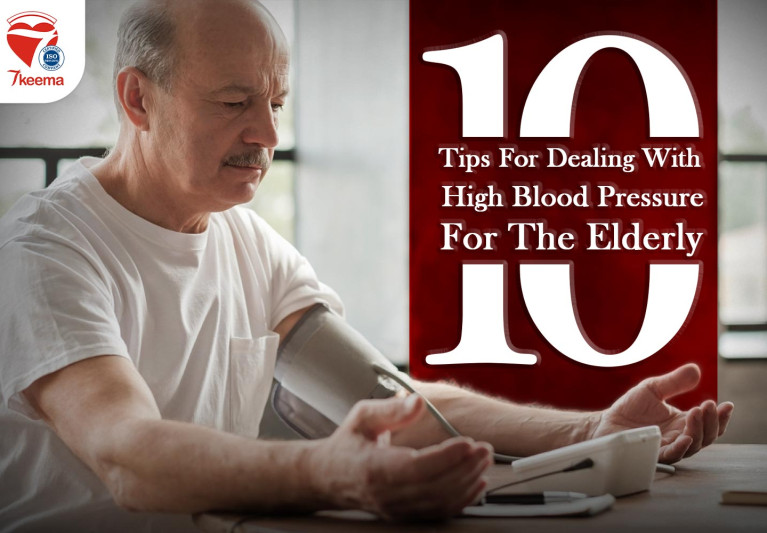A new baby…a new life…a happy family…these three words are nothing but a reflection of what comes to your mind as soon as you hear the news of one of them being pregnant. He puts in his mind that the new hope that came out of the mother’s womb may have consequences that hurt her. Making her feel negative feelings in addition to her feeling guilty because of her sadness or feeling depressed, despite the presence of a newborn child who needs her love and great attention. She cannot take great care of him, and the gap between feeling overwhelming love and feeling like running away, fear, shame, and the struggles of not taking responsibility for that new little one.
Overnight, the woman found herself in hope and pain, and inside the midst of them, she no longer recognized what salvation was. This is one of the largest and maximum well-known problems dealing with women, and for every person who cares about a woman’s health, those emotions are known as postpartum depression. And because we care about women’s health and the issues that worry them, we are determined to move on a touch more to talk about postpartum depression, its reasons, and the way to avoid or triumph over it.

What is postpartum depression?
Postpartum depression is when a girl or a brand new mom feels extreme grief and some mental moves that affect the woman’s health, a sense that may be related to her for weeks, months, or years in a few cases. Maternal or postpartum depression needs to be distinguished.
Maternal despair:
After childbirth, the mom is going thru some emotional disturbance that lasts for days and is known as maternal despair. Its signs and symptoms:
– The mom’s continual unhappiness is the maximum outstanding symptom
-Tension
-The incapability of paying attention
-Temper swings
-Difficulty drowsing
-Loss of urge for food
-Fatigue
-Anger and Hypertension

What are the symptoms of postpartum depression?
This stage lasts from days to a week or two at most. As for postpartum depression, its symptoms may be mixed in the beginning and then become more clear due to its severity and continuity for a longer period because this type of depression may last up to a year and have more severe and clearer symptoms than maternal blues, for example:
– Frequent and rapid outbursts of anger
– Constant worry is one of the greatest signs of postpartum depression.
– Feeling constant fear affects women’s mental health.
– Fear of not being able to experience motherhood well
– lack of energy
– Frequently feeling guilty
– Panic attacks that directly affect the woman’s or the mother’s health are one of the most important indicators of postpartum depression.
– Lack of desire to eat or, on the contrary, eating voraciously and heavily
– Lack of sleep or sleeping for long periods puts a woman’s emotional, psychological, and physical health in a state of exhaustion and exaggerated fatigue.
– Suicidal thoughts may be one of the most serious threats to a woman’s health during postpartum depression.
– Desire to harm oneself or the child is one of the postpartum depression symptoms.
– Severe depression puts women’s mental health at risk.
– Sudden crying is one of the postpartum depression symptoms.
– Desire to be away from society, family, and friends
– While looking at the child, the mother may also feel some fear and anger towards him and a desire to stay away from him and not deal with him.

What are postpartum depression causes?
Despite the idea of starting a new life, postpartum depression knocks on the door. She does not pay attention to such thoughts. But despite the feeling of motherhood that accompanies a woman since childhood and her desire to immerse her in love and permanent affection for anyone, why may she feel depressed after that, and what are the reasons for her fluctuations in Moods and their impact on woman health?
Postpartum depression does not have a clear cause in sight, but we can mention some of the things that were mentioned in some research that speaks, and it is one of the most important influences on the woman’s health or the modern mother and the most important causes:
Hormonal change: Most studies concerned with the health of pregnant or newly born women mentioned that the process of pregnancy and childbirth is followed by some hormonal changes such as estrogen and progesterone, which rise significantly at the time of pregnancy and then begin to decline after the first 24 hours of Birth, and this sudden and severe change in hormonal levels A role in the existence and development of postpartum depression, which is closely related to woman health in general.
Anxiety: The most important thing that worries the health of a woman who has given birth to a newborn is how he will be raised, how he will grow up, and how the ideal motherhood will happen, and all these thoughts lead to postpartum depression.
Postpartum depression is not related to age, gender, or social or educational level. Still, it is a pathological condition that may affect any new mother, as it is an issue related to the woman’s health without entering into any other details.

What about complications of postpartum depression?
And here comes the question, can there be complications of postpartum depression? Does that have other aspects of a woman’s health? The answer is yes. Postpartum depression can affect women’s health significantly and can be multiplied by its impact on the health of the newborn woman. We can summarize its symptoms:
Psychosis: It starts from the first days of childbirth and may extend for weeks, it can vary with women from one development to another, but it remains, in the end, a complication of postpartum depression, one of the most prominent things that affect women’s health throughout the ages.
There are types of psychosis that are more common in women who have just given Birth:
1- Auditory hallucinations: such as hearing false sounds that motivate them to harm themselves or harm the child
2- Visual hallucinations: such as feeling things that are not there
3- illusions
4- Detachment from reality
5- Mood swings
6- Mental schizophrenia
7- manic-depressive
8- Acting differently from the character of the mother
After all these symptoms, can we be sure that those who are exposed to it inevitably suffer from postpartum depression and pregnancy depression, or is there a better way to diagnose it?

What is the result of the test for the presence of depression?
There is no way to identify or test to determine whether or not depression is present. Still, after confirming the presence of depression, its degree can be detected using the Edinburgh Postpartum Depression Questionnaire.
The characteristics of postpartum depression can be identified by some questions and gathering information that can be directed to the new mother, such as:
-Do you feel like hurting yourself?
-Do you suddenly feel the urge to cry unexplained and at short intervals?
-The patient’s history of depression and how it affected the woman’s health
-Do you feel some of the symptoms mentioned above, such as mood swings, anxiety, and overthinking?
-Fear of the child is one of the postpartum depression symptoms.
-Feeling that she does not deserve the title or role of motherhood is one of the most prominent factors affecting a woman’s mental health.
Postpartum depression is a threat to the psychological and woman’s health mentally, so a man or husband must have a role in his wife’s life to help her overcome this crisis, such as providing psychological support and assistance to her, for example:
– Support her daily and ensure her mental health
– I reassured her that the current situation needed them both
– Participate in taking care of the child
– Please don’t blame her for her looks, weight, and self-care
– Help her with the housework
– Make her feel the joy of having a child; for example, talk to her about your happiness at being a father
– Help her take care of the baby
– Don’t let her go to the pediatrician or gynecologist alone; psychological support is not just a few words a person says

How to overcome depression after childbirth?
The health of a woman who has given birth to a newborn whose postpartum depression worsens condition must be ending. Here we advise you about some things to get rid of postpartum depression and restore the health of the woman who has given birth to a newborn. So we have some tips to overcome postpartum depression, for example:
– Trying to think differently since early pregnancy.
– Thinking that the child did not come to steal your life but to become a part of it
– Share new details with your child, such as talking to him during pregnancy, going out to buy his clothes, and changing some details of the house to receive him.
– Take a break and organize a bedtime schedule to help her relax.
– To avoid any psychological damage that affects the health of a pregnant woman, she can use sports such as walking or yoga to get rid of negative energy.
– To overcome postpartum depression and improve women’s mental health, try sitting with women who have had a painful childbirth experience or were suffering from postpartum depression. Talk to them about what is inside you, so their feeling will be the same and similar to what you feel, and sharing their experiences with you will have an echo Positive. You will witness and live with people who have gone through the same circumstances and overcame them to give you a glimmer of hope in such difficult times.
A healthy diet helps her maintain weight, as obesity during pregnancy sometimes affects a woman’s mental health and physical effort.
After all these attempts, if it was not enough for the new mother to be able to overcome postpartum depression and start a new page with the newborn, then you should go to a psychiatrist to receive specialized support or help.

But is postpartum depression a threat only to a woman’s health?
Mostly it threatens women’s health more or more extensively. Still, some fathers suffer from this disease due to a sense of responsibility and a new life ahead for them. Despite the widespread talk about childbirth depression in women, the hormonal changes and hardship they go through during pregnancy and childbirth, and the impact of these factors on the psychological and mental state, a large percentage of men also suffer from anxiety and depression after the Birth of a child. In a Swedish study of 447 Swedish volunteer parents, the study found that 28% had symptoms of depression above average, and 4% had moderate depression. And 1 in 5 depressed fathers sought help even though a third of them had thoughts of self-harm. (1) Nearly 1 in 20 men suffer from depression during a wife’s pregnancy, and about 1 in 10 men are depressed after Birth.
Finally, we wish all mothers good health and safe babies. If the new mother needs some solutions or injections after returning home, you can count on the 7keema services of home nursing.
Reference:
https://my.clevelandclinic.org/health/diseases/9312-postpartum-depression



